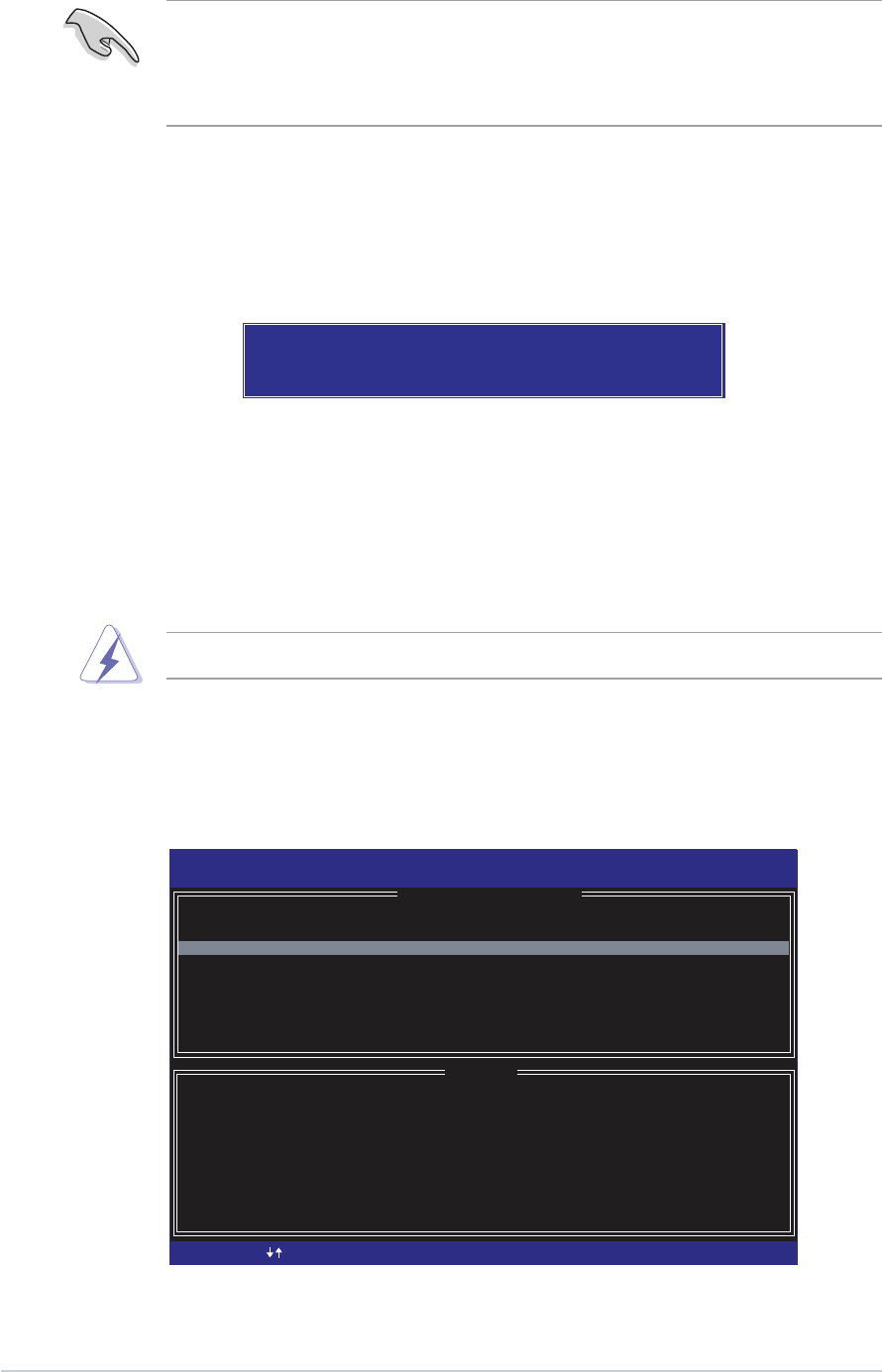
5-205-20
5-205-20
5-20
Chapter 5: Software supportChapter 5: Software support
Chapter 5: Software supportChapter 5: Software support
Chapter 5: Software support
TIP: TIP:
TIP: TIP:
TIP: For server systems, use of a lower array block size is
recommended. For multimedia computer systems used mainly for audio
and video editing, a higher array block size is recommended for optimum
performance.
b. If you selected RAID (MIrrored), the Create Volume prompt
appears.
4. On the Create Volume prompt, press <Enter> to create the array. The
utility prompts a confirmation message, press <Y>.
WARNING: ALL DATA ON SELECTED DISK WILL BE LOST.
Are you sure you want to create this volume (Y/N)
5. Select
4. Exit4. Exit
4. Exit4. Exit
4. Exit then press <Enter> to exit the RAID configuration
utility. The utility prompts a confirmation message, press <Y>.
Deleting a RAID VolumeDeleting a RAID Volume
Deleting a RAID VolumeDeleting a RAID Volume
Deleting a RAID Volume
[
HELP
]
Deleting a volume will destroy the volume data on the drive(s) and
cause any member disks to become available as non-RAID disks.
WARNING:EXISTING DATA WITHIN THIS VOLUME WILL BE LOST AND NON-RECOVERABLE
Intel(R) Application Accelerator RAID Option ROM v4.0.0.6211
Copyright(C) 2003-04 Intel Corporation. All Rights Reserved.
[
DELETE ARRAY MENU
]
[ ]-Select
[ ]-Select
[<ESC>]-Previous Menu
[<ESC>]-Previous Menu
[<DEL>]-Delete Volume
[<DEL>]-Delete Volume
Name Level Drives Capacity Status Bootable
RAID_Volume1 RAID0(Stripe) 2 149.0GBNormal Yes
Take caution in using this option. All data on the RAID drives will be lost!
To delete a RAID Volume:
1. Select the option
2. Delete RAID Volume 2. Delete RAID Volume
2. Delete RAID Volume 2. Delete RAID Volume
2. Delete RAID Volume then press <Enter> to
display the following.


















